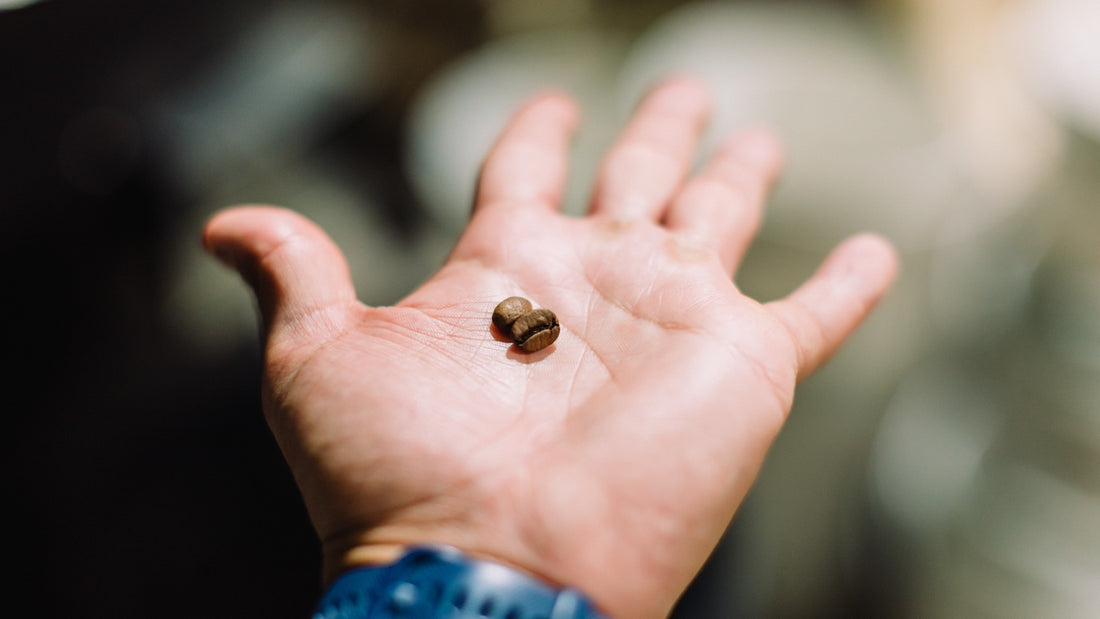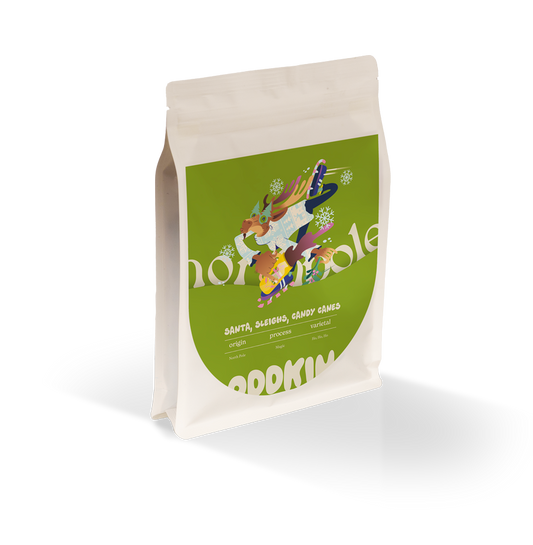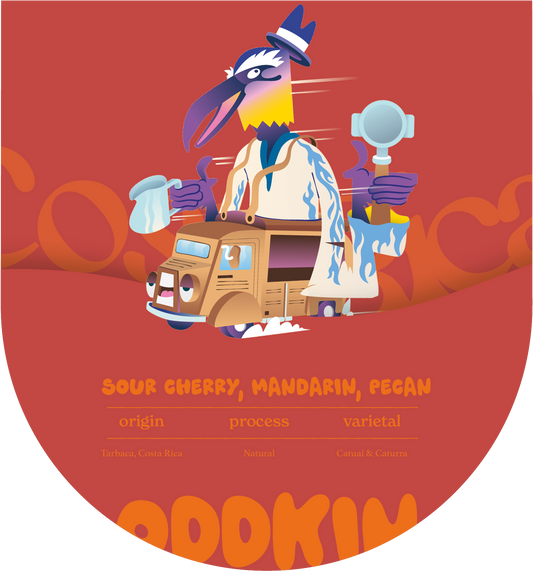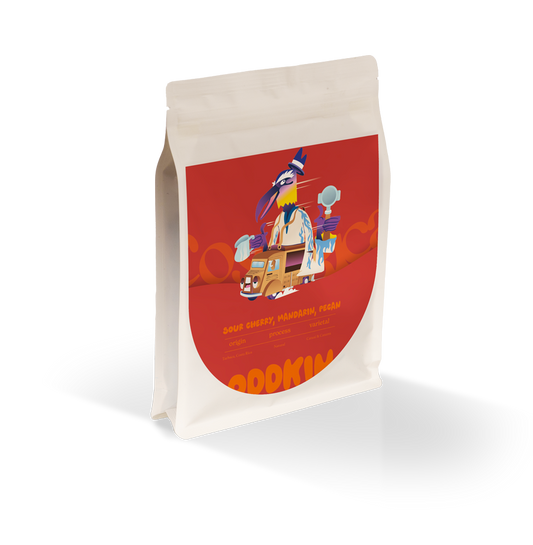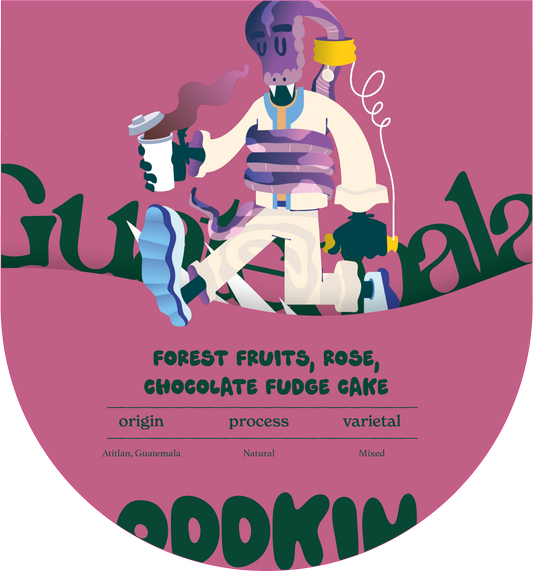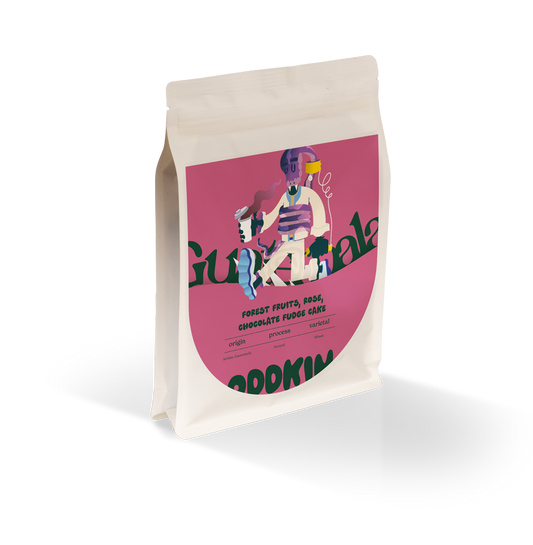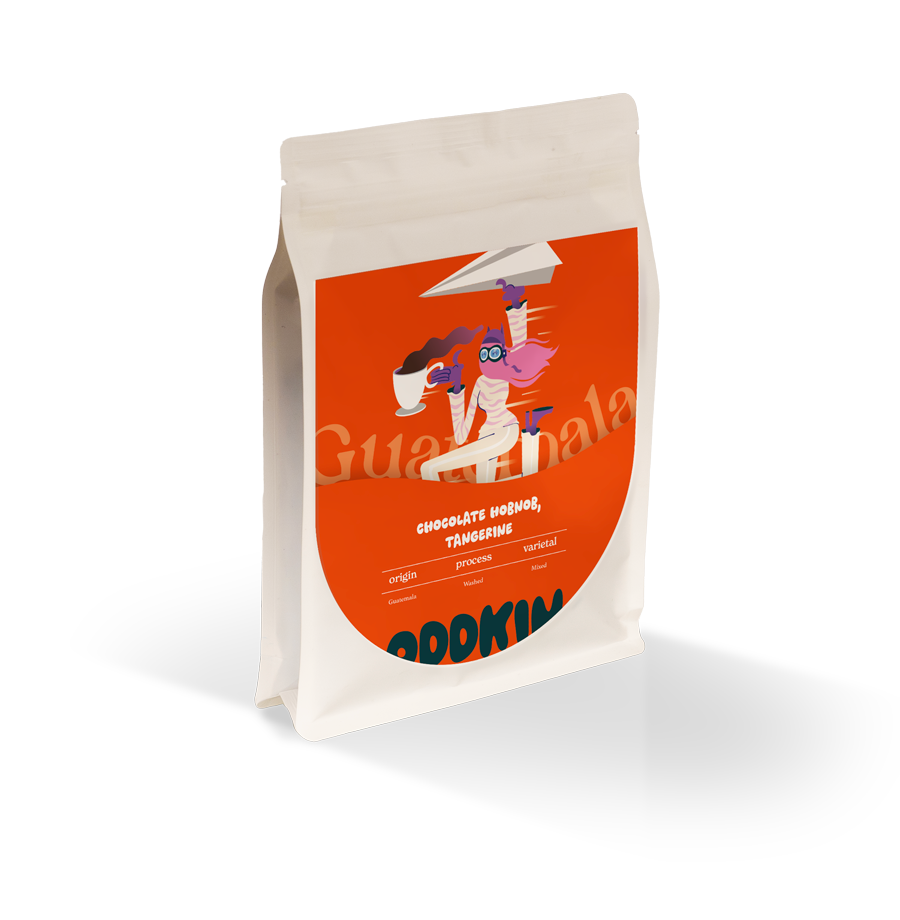What are Arabica coffee beans and what makes them so special?!
When we speak with people about coffee, we find that many haven't considered that coffee beans, unlike money, do in fact grow on trees and start their life green and smelling nice and earthy.
It’s not until we roast coffee that we unlock the magic within these seeds.
There isn’t one type of coffee bean in the world, there are many different coffee varietals, but they mainly fall into one of two families - arabica and robusta.
When you are getting into speciality coffee, it’s important to know the difference. What you taste in your cup of coffee will completely depend upon whether the green coffee beans are arabica or robusta.
You can then dive even further, because so many other factors also affect the taste of what you are drinking - each varietal, such as Yellow Bourbon, Gesha or Castillo, the location of the coffee farm, the altitude, the terroir and the processing method all have an impact on the flavour profile.
This is what we love about coffee, the fact there is so much to learn and more importantly - taste!
If you’ve not tried speciality coffee before, then hopefully reading this article will help you understand that you simply need to dive in and explore what speciality grade arabica coffee has to offer you.
What are green coffee beans?
Green coffee beans are the coffee seeds that are found inside coffee cherries which grow in countries along the coffee belt. The coffee plant (named Coffea) is a beautifully luscious, green plant with white flowers that appear in springtime. Eventually, these flowers become the coffee cherries, taking around 8 months to develop.
The two most common coffee plant species are Coffea arabica and Coffea canephora (known as Robusta).

Arabica coffee beans:
Coffee arabica represents roughly 70% of the world’s coffee production, and are widely regarded as superior, due to their sweeter and softer taste. High grade speciality coffees will always be arabica, and the remarkable complexity that can be unlocked from these beans during the roasting process is exciting for coffee geeks like us.
Arabica coffee plants are less hardy than robusta, so you will find them growing at altitudes between around 550 - 2000 MASL in slightly cooler climates.
There are many varietals within the arabica coffee plant family that all have different characteristics, which will be used by coffee farmers to affect taste, disease resistance and yield.
For example Caturra, originating in Minas Gerais, Brazil and often found growing in Colombian coffee farms, is a natural mutation of Red Bourbon. Caturra has a higher yield than Red Bourbon, meaning that it produces more coffee cherries and it is also more resistant to disease.
Speciality coffee farmers will carefully select the type of coffee plants growing on their farm in order to balance the quality of the cup profiles with the ability to achieve a high yield, within the constraints of their farms climate and geography.
Robusta coffee beans:
Robusta coffee beans on the other hand, are deemed lower in quality than arabica - because of their harsher taste, lower sweetness and lower acidity. You won’t get the same complexity in the cup as you would with a high altitude arabica coffee bean. Robusta beans tend to have a duller and more earthy taste that may have a slightly rough mouthfeel.
You will find robusta coffee plants growing at lower altitudes and at higher temperatures. This makes them much easier to grow, especially because mechanical pickers can be used during the harvest as a result of the less mountainous terrain.
This makes robusta coffee a lot cheaper than arabica, because most speciality coffee farmers will wait to hand pick the ripe coffee cherry, rather than harvesting in bulk when the majority of cherries have reached optimum ripeness.
Robusta coffee makes up the majority of instant coffee and also as a blend element in lower end coffee blends. It’s also worth noting that robusta coffee beans have about four times higher caffeine content compared to arabica coffee.

Where do Arabica coffee beans come from?
Arabica coffee beans originated in Ethiopia, where the climate is so perfect for growing coffee that coffee plants grow wild. There are many local Ethiopian varietals, such as 74110 - which we absolutely love drinking in our Ethiopian coffee grown by Mensur Aba Hika.
You can trace back all arabica coffee to Ethiopia, and we have the spice trade out of Yemen to thank for the fact that coffee spread all over the world.
5 reasons why we love Arabica coffee beans:
- No two coffees taste the same: There is so much to explore within Arabica coffee that it’ll never get boring
- The complexity these beans bring to the table: How a coffee can taste like blueberries will always baffle us, but we’re glad they can
- They grow all across the bean belt: Which means we get to work with amazing producers from all over the world, supporting their local communities
- Coffee is a lifeline to the world: These beans are what gets us going in the morning, helping us to take on life with a spring (and a smile) in our step
- These cherries are versatile resources: You can use the waste skin and pulp after coffee processing to make a beautiful cascara tea
☕
Now that you understand more about the type of coffee beans we roast, why not grab yourself a bag of speciality beans and head over to our brew guides for super simple step-by-step brewing suggestions.
Or, if you're still feeling totally overwhelmed, just pop into your local speciality coffee shop and we’re sure that the friendly baristas there will be absolutely thrilled to take you on a coffee journey.
